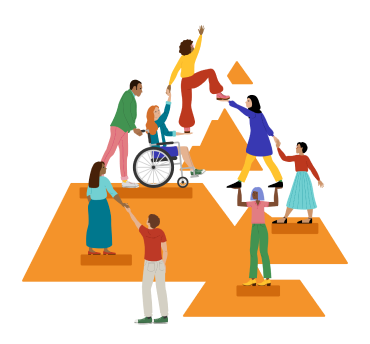Dear Friends,
2020 has brought a wave of unexpected challenges – and a few opportunities – for women. COVID-19 continues to worsen gender inequality as the social and economic toll of the pandemic falls disproportionately on women and girls. This year has seen dramatic spikes in domestic violence, loss of employment for women, reductions in sexual and reproductive health services and incredible sacrifice by the predominantly female health care workforce. Experts worry the pandemic could set back gender equality for decades.
But the pandemic has also presented opportunities. Women at every level are redefining what it means to be an effective leader in the 21st century – and nowhere is it more evident than in the decisions women leaders are taking to curb the spread of the virus. The COVID-19 pandemic has made clear that gender parity in leadership is so much more than an issue of equity: it is the missing link that will help us solve complex health challenges. Not only do we all benefit when we tap the leadership talent of all humankind – not just 50% of it – but health decisions are more robust when made with diverse perspectives and lived experiences.
Having worked for over 30 years in global health, I know change will only happen if we are intentional about placing women and girls at the center of our COVID-19 recovery efforts – and beyond. Now is the time to ramp up our efforts for gender equality, especially in health leadership.That means listening and giving power to women who bring critical insights and knowledge, including as leaders. Now is the time to ramp up our efforts for gender equality, especially in health leadership.
WomenLift Health is dedicated to taking the actions that will change health leadership – from one where women make up 70 percent of the global health workforce but hold only 25 percent of leadership roles, to a future with more talented and diverse women at the decision-making tables. We have set ambitious targets: to reach tens of thousands of women and male allies over the course of a decade through a portfolio of interventions that support change at the individual, institutional and societal levels.
In our first year, we have taken a number of steps to concretely increase women’s power and influence in global health, supported by our incredible team and partners, our Global Advisory Board and the Bill & Melinda Gates Foundation, all of whom have helped us to think big and act with conviction:
Leadership Journey
Over the next decade the Leadership Journey, along with Leadership Workshops and other tools, will power 8,000 women from varied countries and backgrounds to help them lift up their own voices, expertise, and leadership for health impact.
We developed and launched the Leadership Journey – the highest caliber leadership program for women leaders in health.
Our inaugural cohort is comprised of an extraordinary group of women, with many at the forefront of the COVID-19 response. The program provides them with the coaching, mentoring, and peer support to which many women leaders have never had access.
Over the next decade the Leadership Journey, along with Leadership Workshops and other tools, will power 8,000 women from varied countries and backgrounds to help them lift up their own voices, expertise and leadership for health impact.Speaker Series
As the pandemic continues to test the resilience of health systems and exacerbate existing inequalities, a virtual Speaker Series, launched in early March, brought together dynamic speakers from around the world to explore gender and power dynamics in health and action needed to advance women’s leadership. The series has featured fierce thinkers and advocates, including Helen Clark, former Prime Minister of New Zealand and Ellen Johnson Sirleaf, former President of Liberia, among many others. LEARN MOREWomen Leaders in Global Health Conference
The 4th annual Women Leaders in Global Health Conference took place virtually over the course of three days in October, with two distinct days on women’s leadership in South Asia and Africa, culminating in a day of global dialogue. With invaluable guidance from the international steering committee and content development group, the conference demonstrated the power and richness of greater diversity and inclusion. With more than 85% of speakers from low and middle-income countries and over 2,300 people from 50 countries in attendance, the conference shaped our collective vision for women’s leadership in health.
WATCH THE HIGHLIGHTS
With more than 85% of speakers from low and middle-income countries and over 2,300 people from 50 countries in attendance, the conference shaped our collective vision for women’s leadership in health.
WATCH THE HIGHLIGHTS
The role of women leaders in health continues to gain attention, but awareness must also translate to action. WomenLift Health commits to being an engine for this change.
Over the next year, we will expand to serve women in more countries, with interventions led, designed and executed by and with local partners. We will launch our Leadership Journey program and other virtual leadership opportunities in India and East Africa and will rapidly expand to other countries and regions.
As the virtual landscape continues to present opportunities for greater inclusion and connection, our speaker series will take a regional focus and will be led by partners across the globe. I am delighted to share that the 2021 Women Leaders in Global Health Conference will be hosted by partners in India.
I am looking forward with new resolve as this incredibly challenging year comes to a close. If we are to shape a healthier, brighter future, women’s leadership is a must. We look forward to working with partners from around the world to transform the face of global health leadership.
 Amie BatsonExecutive Director, WomenLift Health
Amie BatsonExecutive Director, WomenLift Health 

